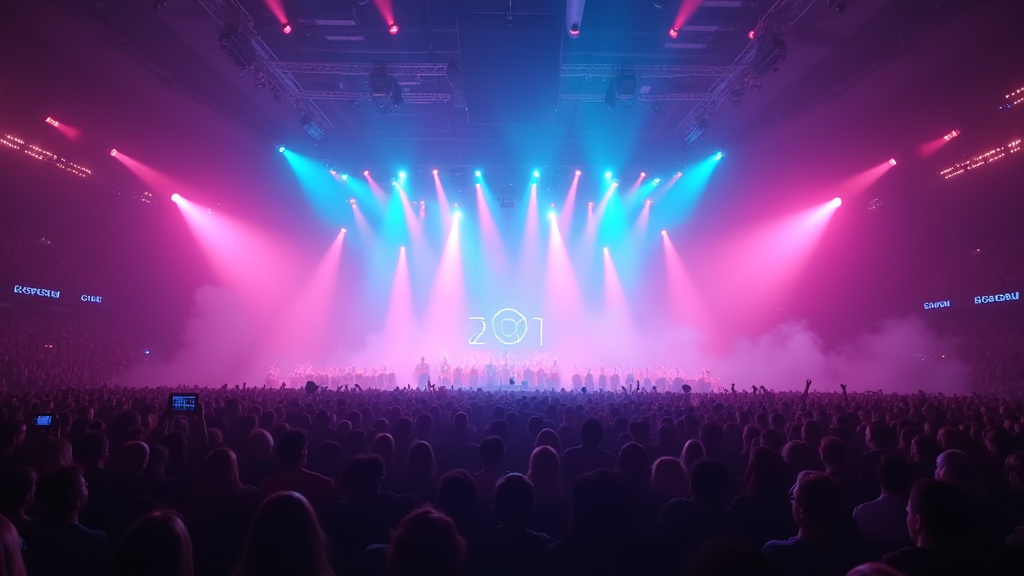The intersection of music and technology continues to be a hotbed of activity, marked recently by significant legal rulings concerning artificial intelligence, strategic business acquisitions, novel platform feature rollouts, and high-profile legal settlements. These developments underscore the rapid evolution and inherent complexities within the digital music ecosystem.
AI and Copyright Face Off in Court
A pivotal moment in the ongoing debate surrounding AI and creative works unfolded recently in the United States. A federal court ruling in California delivered a notable decision in the case brought by comedian and author Sarah Silverman against Meta’s AI training practices. The court determined that using copyrighted works, such as Silverman’s writings, for training large language models is not automatically considered “fair use” under U.S. copyright law. This finding carries significant implications for AI developers relying on vast datasets of existing content.
Adding a layer of complexity to the legal landscape, this ruling arrived just two days after a different judge in the same court issued a seemingly contradictory decision in a separate, though related, case. This divergence highlights the lack of established precedent and the judicial system’s current struggle to interpret existing copyright statutes in the context of rapidly advancing AI technology. The differing opinions signal potential for further legal challenges and appeals as stakeholders seek clarity on the acceptable boundaries for AI development and deployment.
Licensing and Business Expansion
In the realm of music business operations, a significant licensing agreement has been forged between Rumblefish and ByteDance. Rumblefish, a key component of SESAC’s ‘Music Services’ division, which also includes entities like AudioSalad, Audiam, HAAWK, HFA, Mint, and SESAC Digital Licensing, has entered into a licensing deal covering ByteDance’s widely popular platforms, TikTok and CapCut. This agreement is expected to facilitate the legal use of music within the content created and shared across these platforms, addressing ongoing complexities around music rights in user-generated content.
Parallel to licensing deals, the AI music technology sector is seeing consolidation and feature expansion. Suno, a prominent AI music generation platform, has announced the acquisition of WavTool. WavTool specializes in browser-based digital audio workstation (DAW) technology, a critical component for music creation and editing. Suno plans to integrate WavTool’s capabilities into its existing platform, aiming to offer users more advanced tools for manipulating and refining the AI-generated music they create. This move suggests a trend towards providing users with greater control beyond initial generation.
Another player in the AI music space, Udio – currently navigating a copyright lawsuit initiated by major music labels – has also introduced a new feature. The company launched an AI ‘visual editing workstation’ dubbed ‘Sessions’. Designed to enhance user control over song structure, ‘Sessions’ allows creators to manipulate sections within generated tracks, enabling actions such as moving, extending, or replacing parts of a song. This innovation points towards AI music platforms evolving to offer more detailed post-generation editing possibilities.
Platform Developments and Artist Settlements
Platform providers continue to roll out new features to engage users and creators. TikTok, a dominant force in short-form video, has introduced a LIVE Fan Club feature. This offering is designed to provide dedicated fans of livestreamers with exclusive perks, including access to private, exclusive chat rooms, special badges to display their support, and prominent entrance spotlights when they join a livestream. The introduction of this feature coincides with TikTok reporting a significant user base for its live content, reaching 130 million daily livestreamers, indicating the growing importance of live video on the platform.
Rounding out the recent news cycle is the settlement of a copyright dispute involving acclaimed rapper Snoop Dogg. The artist was embroiled in a case concerning the alleged use of two backing tracks on his album ‘BODR’. The parties involved have formally filed a joint dismissal motion in federal court in California, signaling a resolution to the matter. This settlement brings closure to a case that was previously slated to proceed to trial in September.
Taken together, these recent developments paint a vivid picture of a music technology landscape characterized by intense legal scrutiny, strategic business maneuvers, rapid technological innovation, and continuous efforts by platforms to enhance user engagement. The outcomes of ongoing legal challenges, coupled with the pace of technological advancement and industry dealmaking, will undoubtedly continue to shape the future of music creation, distribution, and consumption in the digital age.





